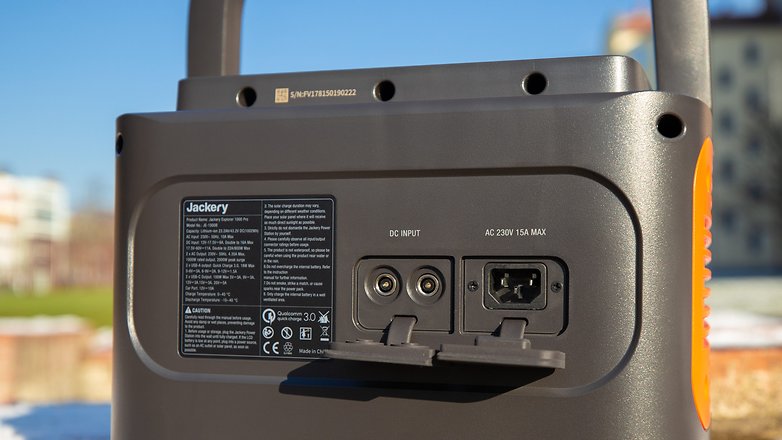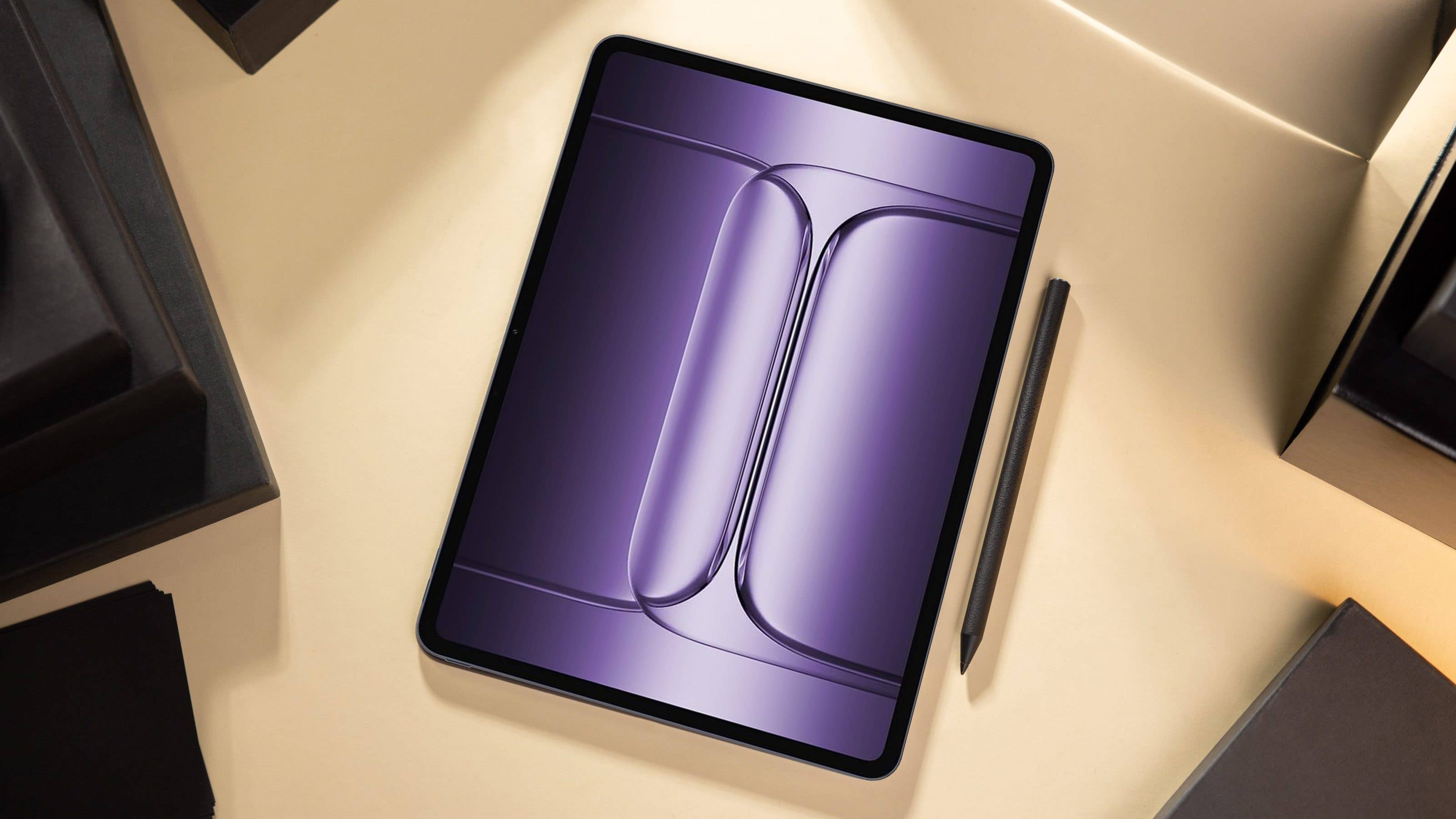
Whether at home or camping: The high-quality Explorer 1000 Pro from Jackery provides you with a very convenient energy source—but also at a steep price of $1,099. Apart from a timeless design, the power station is easily transported and stored thanks to the folding handle design. Unfortunately, there is no supporting app. Find out whether the Jackery Explorer 1000 Pro’s high price tag is justified in our review.
Good
- Robust, high-quality design
- Excellent portable and storage possibilities thanks to the folding handle
- Detailed & clear screen
- Numerous connections supported
- Power saving mode available
- Fast charging function for USB-C
- Pass-through charging and UPS option
- Low operational noise
Bad
- Buttons lack tactile feedback
- LED light is only of limited use
- No supporting app
The Jackery Explorer 1000 Pro in a nutshell
The Jackery Explorer 1000 Pro comes with a massive price tag of $1,099. Can the performance of the power station justify the high price tag? In any case, the Jackery Explorer 1000 Pro is an incredibly convenient power station. Not only is it easy to bring around thanks to the built-in folding handle, but you also avoid an unwanted round of real-life Tetris when stowing it in the trunk. Apart from the possibility to use the Explorer 1000 Pro as a UPS, there are many helpful features like a fast charging function or an energy-saving mode.
Unfortunately, there is no supporting app to go with the hardware. The buttons are quite hard to feel in the dark, and the LED light with three brightness modes hardly helps. In return, the power station performs well in the inverter’s efficiency rates and thus offers a really convincing overall package.
Design and connectivity
Jackery offers the Explorer 1000 Pro as a versatile portable power station that is very convenient to carry around and store thanks to the folding handle. There are rubber covers to protect the ports, while vents on the side support the timeless design. In the Explorer 1000 Pro, Jackery has installed a lithium-ion nickel manganese cobalt oxide battery, or Li-Ion NMC for short.
What I liked:
- High-quality, timeless design.
- Excellent portability and convenient stowage thanks to the folding handle.
- Ports are protected by rubber covers.
What I disliked:
No matter how we look at it, one thing always stands out. Jackery places comfort and high-quality workmanship right at the top of the list. First things first: The accompanying accessories include a power cord, a car charger cable, two DC7909-to-DC-8020 connectors, and the standard user manual. The Jackery Explorer 1000 Pro tips the scales at around 25.4lbs (11.5 kg) and is a compact power station measuring 13.39 x 10.32 x 10.06 in (34 x 26.2 x 25.5 cm).
On the one hand, the Jackery Explorer 1000 Pro can be carried around in a very comfortable manner thanks to the foldable handle. On the other hand, you can also place other objects on the power station if your trunk is lacking any space. Jackery has equipped the Explorer 1000 Pro with rubber feet so that you don’t have to place the power station directly on dirty surfaces.

Apart from the USB-A and USB-C ports, all ports are covered with a rubber cover. The two vents are each located on the side, supporting the sleek design of the Jackery Explorer 1000 Pro. Finally, the back of the power station features ports to charge the Explorer 1000 Pro, which also works with solar panels from Jackery’s SolarSaga series.

You can leave the Jackery Explorer 1000 Pro in the sun without any hesitation. Thanks to heat dissipation, exhaust fans, and protection against excessive temperatures, the portable power station offers complete charging safety. However, you have to keep the Jackery Explorer 1000 Pro away from rain, since the power station is not waterproof.
Operation and display
The Jackery Explorer 1000 Pro has a small screen that displays plenty of details. This provides you with all the necessary information at a glance. Unfortunately, there is no supporting app from Jackery. Thus, Jackery had to install physical buttons on the power station, which are unfortunately difficult to feel without looking at it. The existing LED light only helps to a certain extent.
What I liked:
- Detailed, clear screen.
- Power saving function is available.
What I disliked:
- Buttons are difficult to feel in the dark.
- LED light with three brightness levels is hardly of any help in the dark.
- No supporting app.
The power station has a small, detailed display that provides you information about the input and output power, how long the power station still needs to charge, how long a connected device can be charged for, and the remaining battery life the power station has. The display also warns you whenever the mercury drops too low or jumps too high. The display is always perfectly legible in the review, even when under direct sunlight.

Unfortunately, Jackery does without a supporting app, which inevitably led Jackery to install several physical buttons for operation. This brings us to our primary complaint. This is especially noticeable when you use the power station at night, since the buttons are quite difficult to feel in the dark.
The available LED light with three different brightness levels remedies this, or at least, attempts to. In this practical review, the LED light is so blinding that it is of no help to anyone, and you have to keep trying to find the right button by chance. Once you have successfully located the button, a green LED on the respective button shows you for which port the power supply is activated. A small, but extremely helpful orientation point.
Performance
The Jackery Explorer 1000 Pro is capable of powering a great number of devices. The power station works quietly and not only supports pass-through charging, but can also be used as a UPS. The efficiency level is okay: The Explorer 1000 Pro outputs up to 835 watt hours in the review, while you can pack 1,064 watt hours into the power station for a full charge.
What I liked:
- Fast charging function available.
- Energy saving mode.
- Low operational volume.
- Fully charged after just 108 minutes.
- Supports pass-through charging.
- Doubles up as a UPS.
What I disliked:
You can power devices like smartphones, tablets, or laptops with 18 watts of maximum power at any time thanks to the two USB-A ports. The two USB-C ports output 100 watts of maximum power via the Qualcomm Quick Charge 3.0 standard.
The Jackery Explorer 1000 Pro also supports pass-through charging, which means you can connect devices to the power station for charging while the power station itself is also charging—and the energy for the connected devices will not be routed via the battery cells. That’s not all, though. The power station can also double up as a UPS. This means that the power station automatically takes over power supply tasks of connected devices in case of an unexpected power failure.
How much energy do you get out of a fully charged battery? Since power stations do not completely drain their cells, the actual usable capacity is always less than the nominal capacity of the cells. The Jackery Explorer 1000 Pro delivers 835 watt-hours when fully charged in the review. A full charge, on the other hand, requires 1,064 watt-hours. Thus, the Jackery Explorer 1000 Pro achieves an efficiency of 78.2 percent—the power station converts the remaining 21.8 percent into heat. This value places the power station in the high average of brand models.
What can we do with it in practical use? Decide for yourself whether it is useful or not: For example, we were able to supply a toaster with 780 watts of power for one hour and eight minutes. During the charging process, the power station was not a great distraction, operating at a volume of 46 decibels. Wireless charging is unfortunately not possible with the power station.

When charging the Explorer 1000 Pro for the first time, it was noticeable in the review that the volume increased from a battery level of 30 and 49 percent respectively, while the input power remained constant at around 740 watts. The power station seemed to absorb heat peaks in this phase.
What I particularly liked in the review was how the fans were barely audible even when charging the Explorer 1000 Pro and did not prove to be distracting at all. During the charging process, the screen provides you all the time with information regarding the battery status, the input power, and the remaining time until the battery is fully charged. During the review, the Jackery Explorer 1000 Pro was fully charged and ready to go after 108 minutes. Finally, there is a power saving function. This is activated by pressing the AC button and display button simultaneously.

Inside the Explorer 1000 Pro is a ternary lithium battery, or more specifically, a lithium-ion nickel manganese cobalt oxide (Li-Ion NMC) battery. The use of the Li-Ion NMC battery brings disadvantages compared to other power stations with LiFePO4 batteries.
The Jackery Explorer 1000 Pro is designed for 1,000 full charge cycles before the batteries in the power station drop to 80 percent of their capacity. LiFePO4 batteries manage about 2,500 to 3,000 charge cycles here. Whether this plays a role depends on your intended use.
Jackery offers another possibility to charge the power station with the solar modules of the SolarSaga series. Optionally, you can purchase solar modules in three power levels for the Explorer 1000 Pro. In the review of the Explorer 1000 Pro, I took a first look at the SolarSaga 200. The solar modules match the design of the Explorer 1000 Pro and also carried a very high-quality impression. As with the Explorer 1000 Pro from Jackery, it quickly became clear how much Jackery cares about convenient transportation for its solar panels.
Are you interested in a review of Jackery’s SolarSaga 200 solar panels? Which aspects should we pay special attention to? Let us know in the comments.
Conclusion
Jackery placed great emphasis on comfort and convenience with the Explorer 1000 Pro. The folding handle on the Explorer 1000 Pro completes the simple, high-quality design of the power station. With the Jackery Explorer 1000 Pro, you can easily supply numerous devices with energy at a low noise level.
However, Jackery does so without a supporting app. The hard-to-find buttons on the power station caused me to frown many times when trying to locate them in the dark. Unfortunately, the available LED light only remedies this to a limited extent.
Nevertheless, the Explorer 1000 Pro from Jackery is an excellent power station, albeit at a steep price. However, if you are willing to spend a little more money, the Jackery Explorer 1000 Pro is definitely a good choice.






